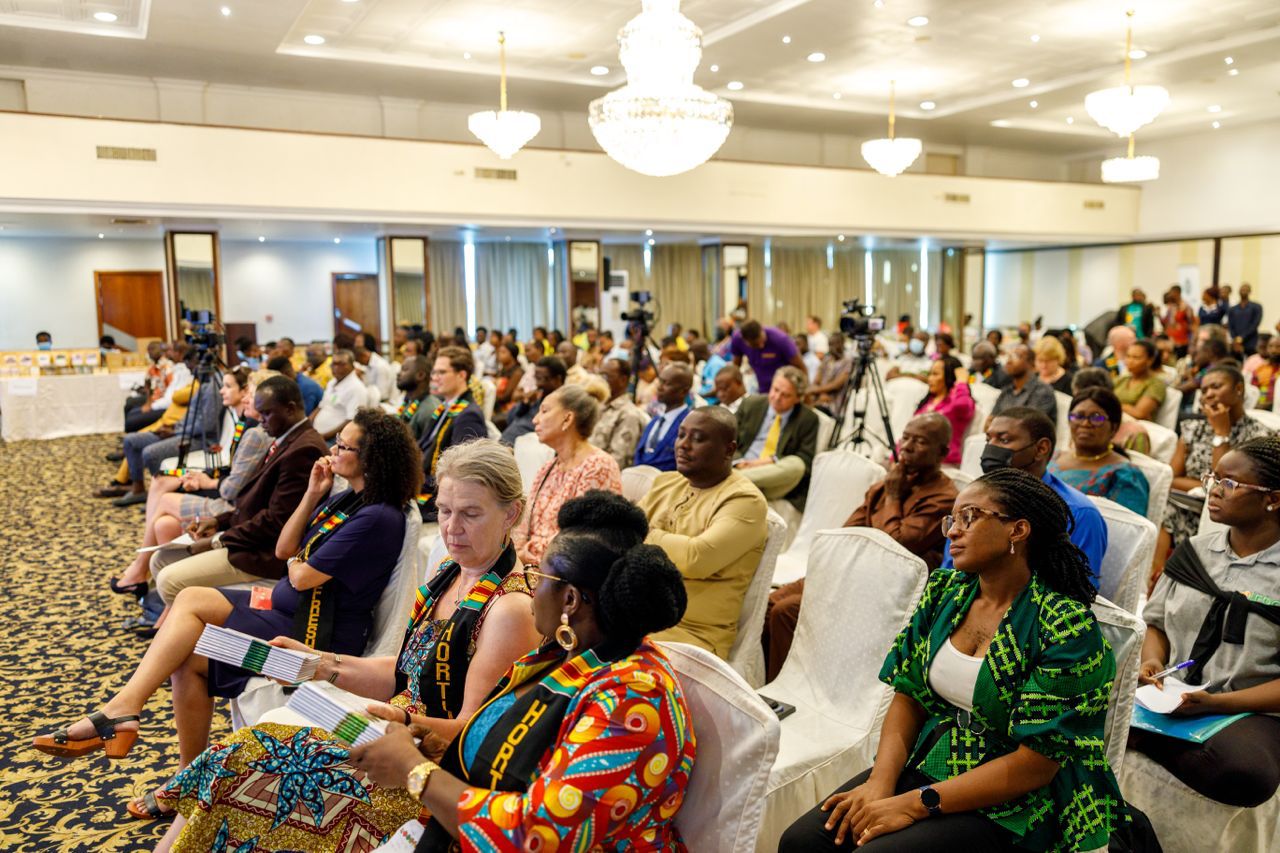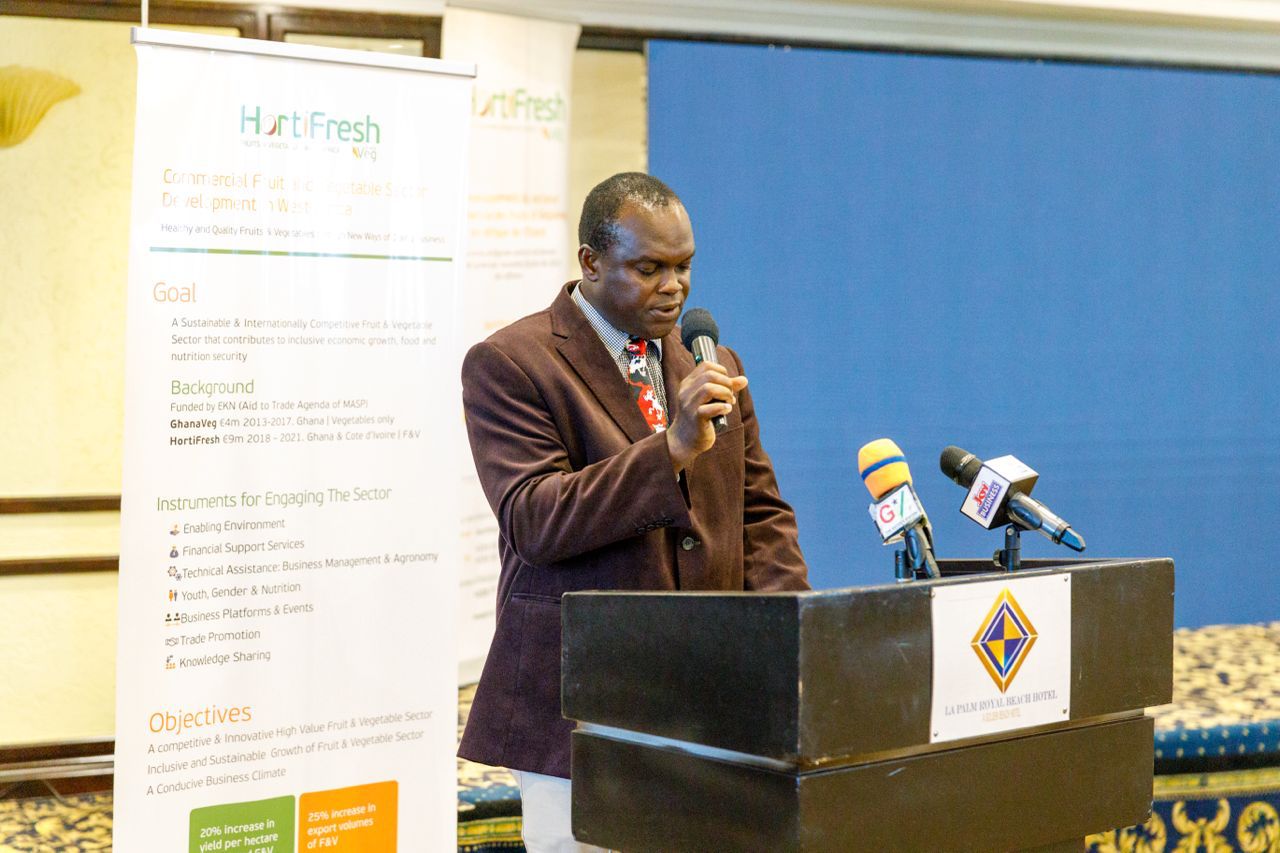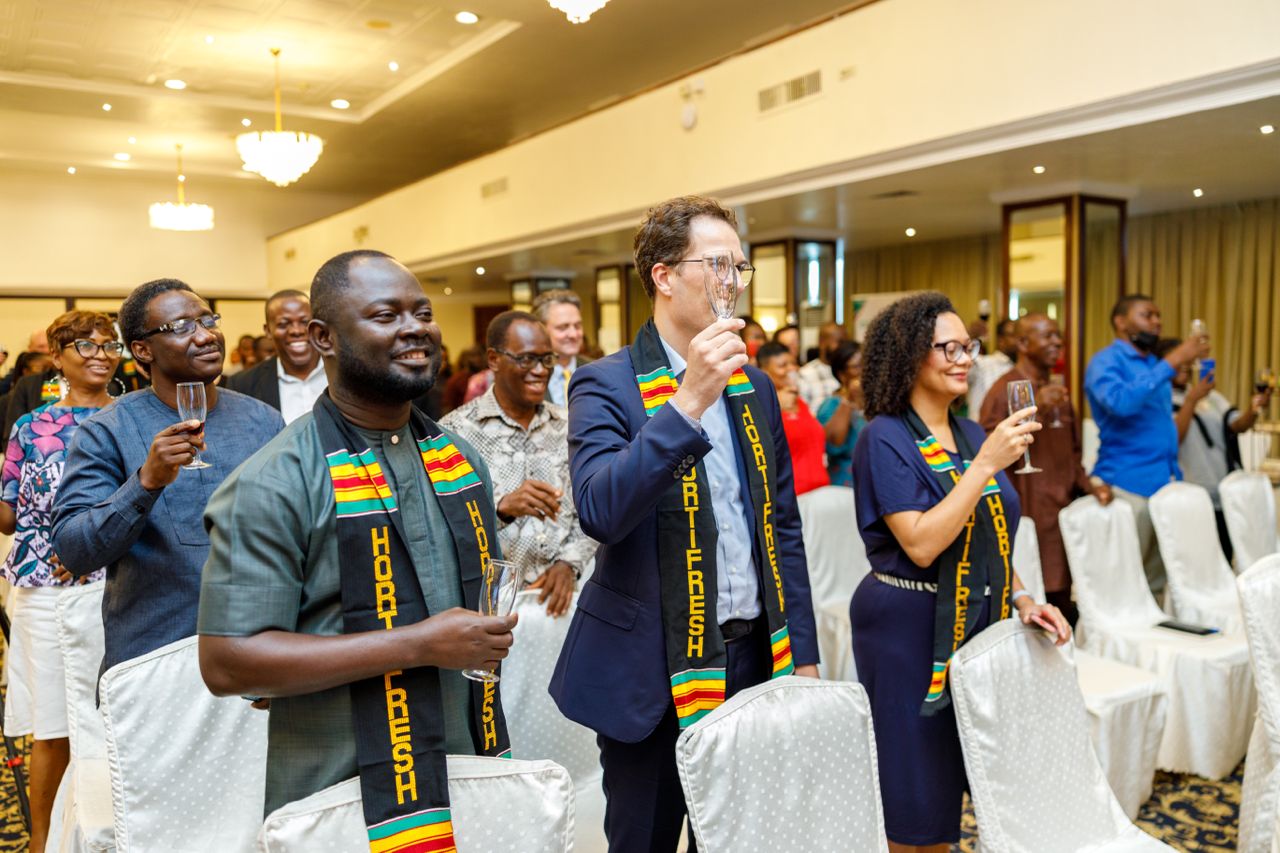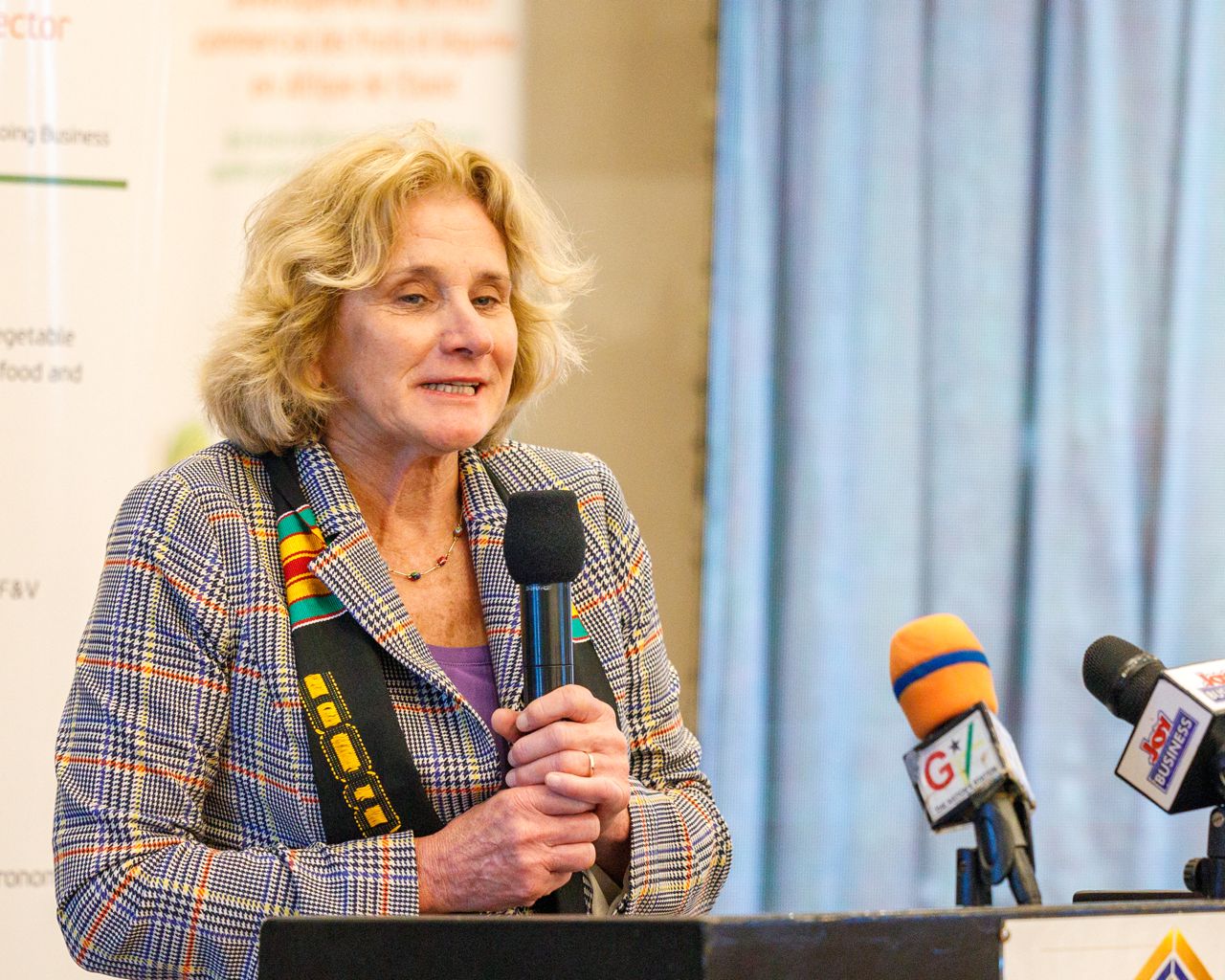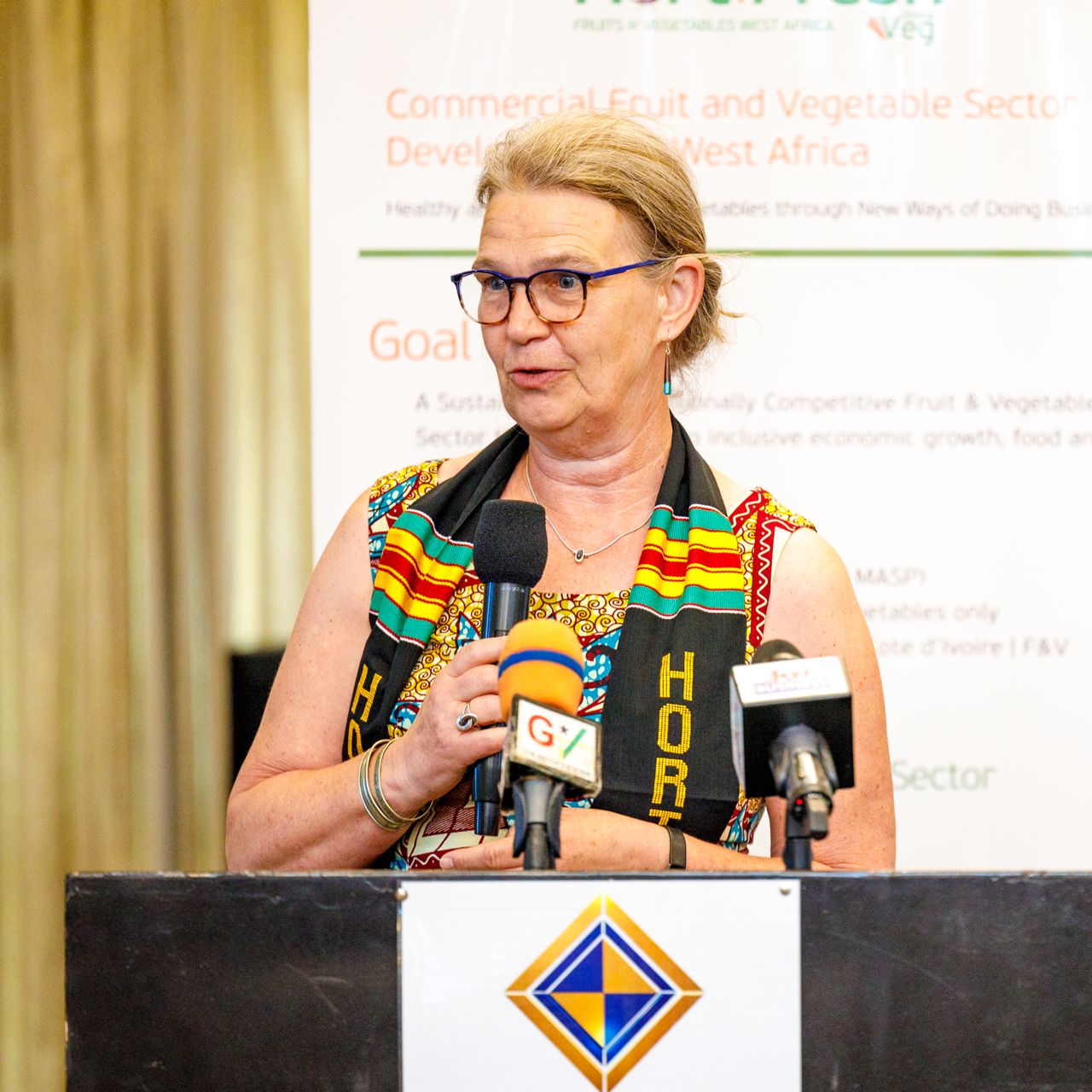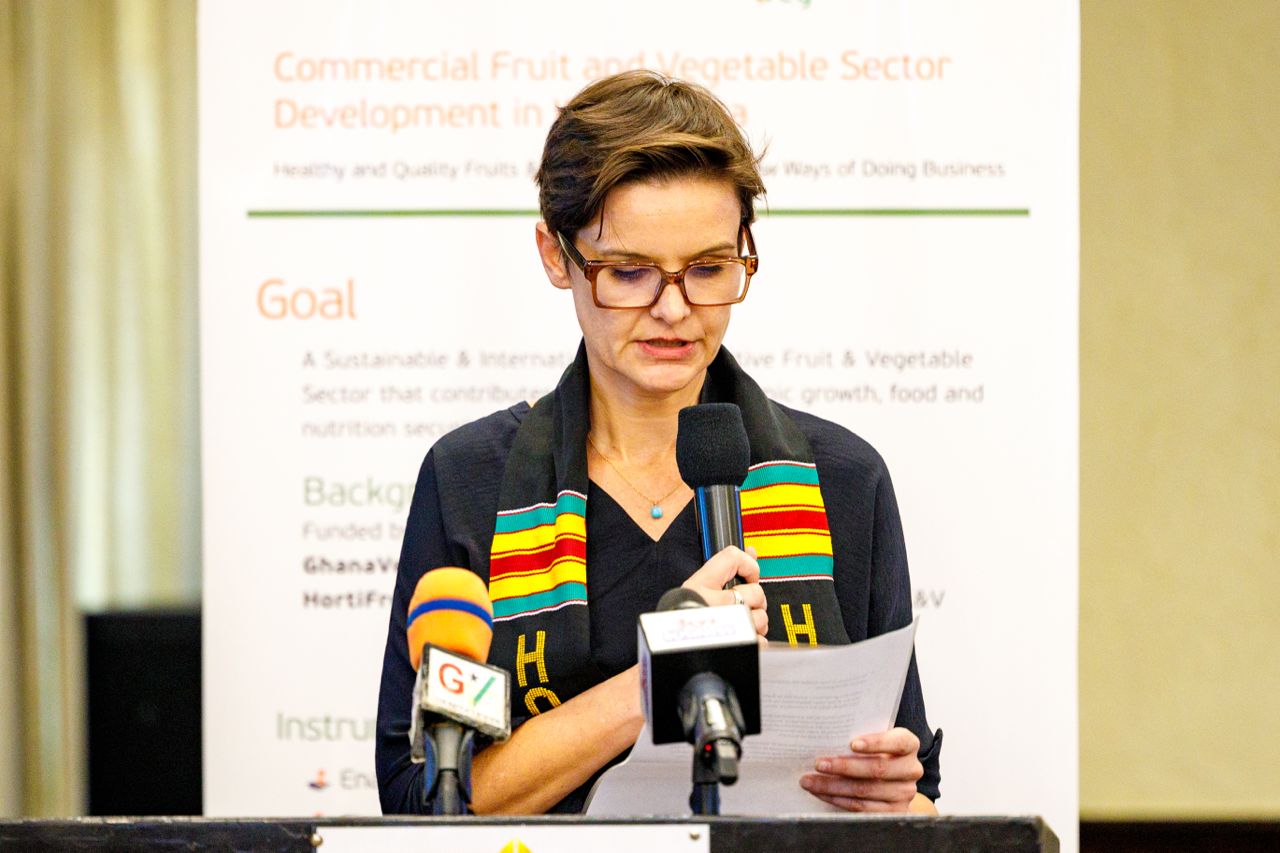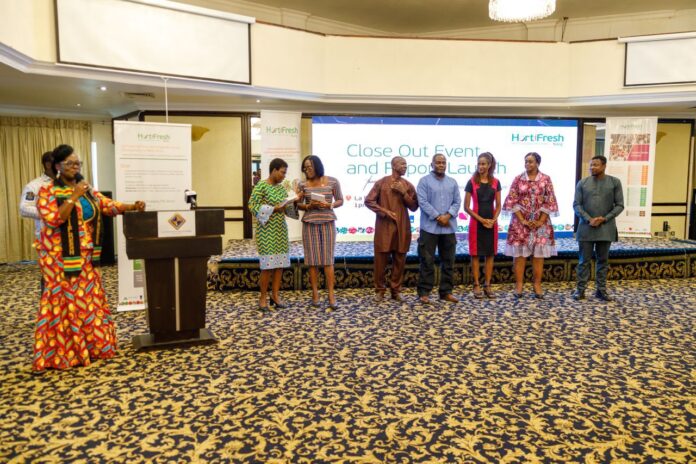HortiFresh West Africa has officially climaxed its 8 years of transformational agenda within the Horticulture sector at a colourful close-out event held on Thursday, 2nd June 2022 in Accra.
The event held on the theme, “Sustaining Gains Made For a Competitive Horticulture Sector” also highlighted the report launch of activities carried out over the past years by HortiFresh with funding from the Embassy of the Kingdom of the Netherlands in Ghana focusing on the fruit and vegetable sectors in Ghana and Cote D’Ivoire.
Speaking at the event, the Director for Agriculture at the Crop Services Directorate of the Ministry of Food and Agriculture, Dr. Solomon Gyan Ansah said the government’s new direction for national development within the period 2017-2024 is to create the conditions for the Ghanaian private Sector to propel growth and create ample employment opportunities.
Adding that strengthening the horticulture sub-sector along the value chain with attention to value addition and market access is high on the Ministry of Food and Agriculture Development agenda.
Dr. Ansah touted the significant and impressive results enacted by the HortiFresh program over the years under the ministry’s watch.
“The HortiFresh West Africa Program is closing with some results which include; improving the knowledge and income of over 1,500 family farms, the creation of 3,000 jobs, adoption of research results, and the certification and financing of more than 30 Small and Medium Scale Enterprises (SMEs). The program has impacted positively in people’s lives through the creation of sustainable livelihoods, improved to access inputs, finance, technical support, and access to markets,” he said.
He noted that the collaboration between HortiFresh and the MOFA has been enormous and beneficial.
“Key outputs of our joint collaboration include the development of onion, mango, tomato, and peri-urban clusters as well as preparatory works towards the formation of the Horticulture Development Authority (HDA). HortiFresh also strengthened the capacities kf agricultural extension officers located in these areas. The program also provided support for knowledge transfer from the trained agronomists to smaller farmers in their areas of operations,” the Director, said.
The Program Manager of HortiFresh, Mrs. Sheila Assibey-Yeboah, stated that their main objectives include improving productivity, facilitating more efficient markets, improving the business climate, professionalizing the value chain and linking actors with Dutch/EU private sector have been achieved to a large extent.
She attributed these achievements to the significant activities carried out over the years.
“The HortiFresh program has also contributed to knowledge and skills enhancement in agronomy, innovation, the inclusion of women and young persons in horticulture, reliable jobs in horticulture, certification, nutrition awareness, B2B initiatives, and strengthening of private sector associations,” she stated.
She added that the success of the program has seen massive improvement within the sector driving actors and players on board.
“Over the period, we have witnessed remarkable growth in the horticulture sector. New norms have been created, markets have been shifted, government and private sector are engaging more, and clearly, business processes now seem more efficiently organised.
“It has been quiet and incredible journey supporting different segments of the horticulture sector through the testing of ideas, conducting scoping studies, sharing knowledge and experiences, providing business management advice, handholding, strengthening capacities for access to finance, connecting markets to demand sources and influencing policy through high-level dialogue and public sector support,” the program manager, Mrs. Sheila Assibey-Yeboah added.
She, however, appreciated the support from all coordinators across the country and other sector players who played vital roles in the success of the program.
“We want to emphasize our deep appreciation for the guidance, rich counsel, and support we received from the Ministry of Food and Agriculture authorities in all 16 regions that we worked in, particularly, the excellent collaboration with officials at the district offices and the excellent coordination of all activities.
“…For you sector practitioners, producers, aggregators, processors, exporters, marketers, and service providers, we are indeed impressed with the level of knowledge, skill, and enthusiasm to evolve being exhibited by you all,* she continued.
Dr. Irene Koomen, Coordinator of the HortiFresh Program at the Wageningen Centre for Development Innovation stressed on the need for focusing on horticulture.
“Rapid population growth and urbanisation, an emerging middle class demanding more, quality and safe horticulture products, awareness of health benefits of consumption of fresh fruits and vegetables is rising, opportunities for processing and service delivery, management of natural resources and year-round production,” she said.
The Director of Wageningen University Research, Mrs. Hedwig Bruggeman in her speech, highlighted the implementation of HortiFresh through her outfit.
“The program has been financially and morally supported by the Dutch government and worked in line with the agriculture vision and strategy of the Ghanaian government. The success of the program is grace and hard work and the entrepreneurial attitude of the beneficiaries. I would like to call this a closure but the start of a new era where the beneficiaries of HortiFresh move on, grow their business, make new connections and opportunities,” she said.
She disclosed that, an approach by the Wageningen University Research which was successfully applied in the HortiFresh program was based on two principles.
“First, Interdisciplinary, finding solutions together. Combining innovations in plant science and environmental science with the latest insights in social science on transition thinking for agricultural sectors.
Secondly; working from a multi-stakeholder approach which has also been the fundamental of the success of the Dutch Agricultural sector; local, national and international governments, non-governmental organisations, private sector as well as Education and research institutes,” she added.
The 8-year successful program which officially comes to an end by June was implemented by a consortium of partners which includes; SNV, Resilience, Advance Consulting, and Sense.
